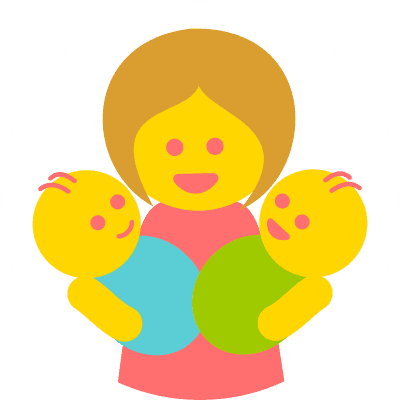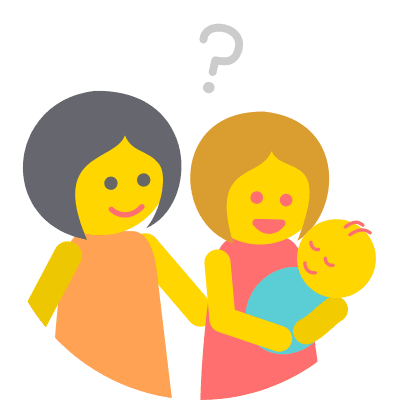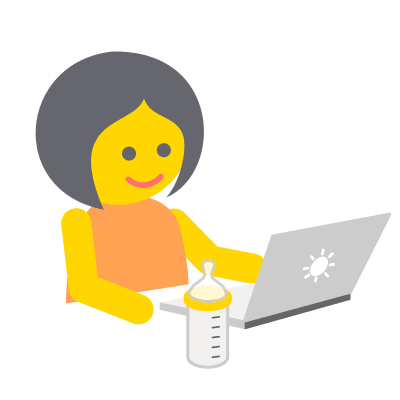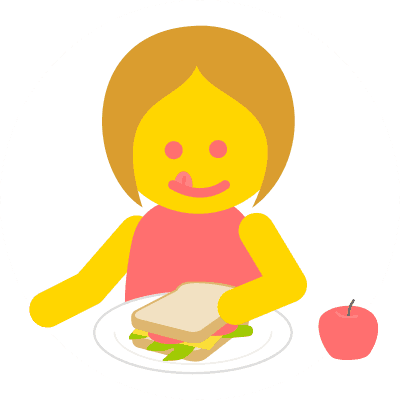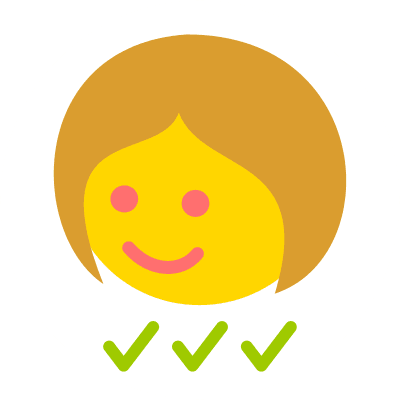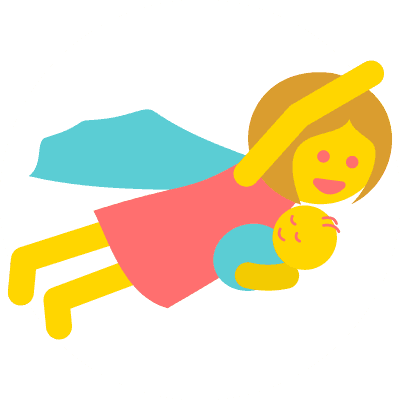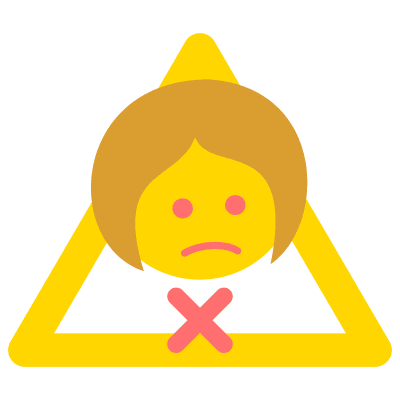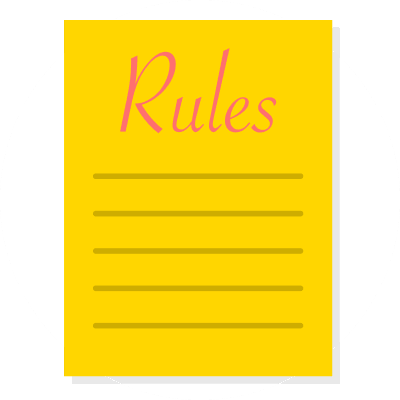Babysitting Glossary For Parents (Common Childcare Terms Defined)

Read our hand-compiled list of common babysitting terms and phrases along with useful definitions to help busy parents.
- Au pair
- A domestic assistant. Normally someone from a foreign country such as an exchange student who lives with a host family. In exchange for room and board, an au pair takes on some housework and responsibility for looking after the family's children. They usually work on a part-time basis in addition to attending school and may receive a personal monetary allowance.
- Babysitter
- A person put in charge to look after a child while the parents are away, typically only for a few hours at a time. Babysitters usually work part-time on an as-needed basis. They are often teenagers looking to earn some extra money while attending school. Learn more in our complet guide: What is a babysitter?
- Background check
- A series of checks to verify the identity and qualifications of a person you are hiring to work for you. It can include checking identification, contacting references, checking social media, verifying First Aid and CPR verification, permanent resident status, criminal record checks, and more. Learn how to run proper checks by reading our guide: How to run a background check on a babysitter.
- Checklist
- A simple list of tasks that can be checked off as they are completed. Leaving a checklist is a good way to ensure babysitters complete any important tasks that you need to be done while you're out.
- Childcare
- The act of looking care of children while parents are working or otherwise occupied. Daycares, babysitters, and nannies are all forms of childcare.
- Childcare expenses
- The costs that a parent pays for childcare. These are often tax-deductible when you file your income taxes at the end of the year, so hold on to your receipts! See our parent's tax guide: Can you write off babysitting expenses?
- Custodian
- Someone who has been given responsibility to look after someone or something. In the case of childcare, it's someone who has been given the legal responsibility to look after a child.
- Daycare
- A form of childcare where parents can drop off their children before work and pick them up at the end of the day. Daycares typically watch multiple children at a time. Daycare can be a licensed business with multiple employees, or unlicensed and operated by one person out of their home. Both forms of daycare are legal in most places.
- Day date
- When parents take time off work (or call in sick) to have a date, go see a movie, or go out for lunch together while their child is in school or daycare.
- Discipline
- Your family's specific rules regarding punishment for bad behavior or disobeying rules. Used to correct disobedience in children. It can include things like time outs. At Kidsit we strongly discourage spanking.
- Early childhood education (ECE)
- A specialized form of education that focuses on teaching children from birth up to the age of eight. Teachers or childcare providers can attend higher education to receive an ECE degree or diploma.
- Family daycare
- Daycare services that are provided in a home setting, as opposed to in a corporate environment. Also called home daycare.
- Fire
- To terminate the employment of a babysitter, to sever the working relationship with them. May be done when babysitters violate rules, or even just because of problems communicating.
- Governess
- A woman who is employed to privately teach children in a household. She is more focused on education and training than general childcare. It is a somewhat antiquated term that is mostly only used in the United Kingdom. A wealthy family may have a nanny for younger children and a governess for school-aged children.
- Guardian
- See "Custodian"
- House rules
- Rules that parents put in place for their children. It includes things such as how many hours per day your child can watch television or use technology, restrictions on certain foods, etc. Babysitters should be given a summary of your house rules to prevent any misunderstanding.
- House sitter
- Someone entrusted with staying in your home while you're away, in exchange for assuming certain responsibilities. A house sitter may need to do maintenance such as collecting mail, cutting lawns, maintaining swimming pools, keeping people from trespassing, and other activities that would need to carry on if the owner was home.
- Identification
- Government-issued documents such as a driver's license or passport that can be used to verify the identity of a babysitter.
- Independant contractor
- A babysitter who runs their own business, as opposed to working for parents as an employee. An independent contractor doesn't have taxes and other benefits withheld from their pay as an employee would.
- Insurance
- A policy that protects a homeowner against loss or damage. Parents should check their insurance to make sure that a babysitter is covered in case of fire or other damages.
- Interview
- Meeting a babysitter to have a discussion and determine if they're a good fit for your family. An interview can be conducted in person or over the phone.
- Kidsitter, Kidsitting
- See Babysitter.
- Live-in
- A domestic employee who lives at their employer's residence. Housekeepers, nannies, and other workers can all be live-ins. They may have a room within their employers home or a separate apartment (sometimes called a "granny flat") on their employer's property.
- Meal plan
- An outline left for a babysitter that explains what foods a child should be eating at which times. It can include breakfast, lunch, and dinner, plus snacks.
- Mother's helper
- A babysitter in training, usually between 10 and 12 years old, who provides childcare while a parent is at home. It takes some of the burdens off of the parents to catch up on other tasks while giving a new babysitter support in case they run into issues.
- Nanny
- A full-time childcare provider, typically a woman. (A male nanny is sometimes referred to as a "manny.") They provide one-on-one childcare within the home. Nannies may live in or out of the house depending on their personal circumstances. How is a nanny different to a babysitter? Check out our complete comparison: Babysitter vs nanny.
- Nanny cam
- A hidden camera placed in the house to observe the activities of babysitters, nannies, and housekeeping staff. Parents may use one if they detect theft or child abuse is taking place. In many places, it's illegal to record someone without notifying them about it. Learn more about nanny cams in our article: Is it legal to record a babysitter?
- Nanny tax
- Refers to a combination of payroll taxes that get withheld from a household employee. In many places, babysitters may qualify for the nanny tax depending on how much they earn per year from an employer. If they exceed the amount, their employer is forced to consider them an employee rather than an independent contractor and must withhold taxes from their pay on their behalf. Learn more in our Babysitting tax guide for parents.
- Permanent resident
- A resident status for someone who lives in a country of which they aren't a citizen. People who live within a country must typically have permanent resident status to legally be able to work unless they have a special visa.
- Pet sitter
- Someone who temporarily takes care of another person's pet for a set amount of time. Pet setting usually occurs at the pet owner's home (combined with house sitting), although a pet sitting can also occur at the provider's home or place of business.
- References
- Former employers and other contacts that babysitters provide as a form of social proof. You can contact their references and ask them questions to determine their trustworthiness, dependability, and other important characteristics. If you're asked to write a reference, see this guide first How to Write a Babysitter Reference.
- Registered child carer
- In Australia, a person registered with the Department of Human Services (Centrelink) as a carer. It can include people such as nannies, relatives, and grandparents. Registered carers must be over 18, paid by the child's parents to look after their child, and must be able to provide receipts for that payment. You must use a registered carer in order to claim child care benefit.
- Sitter
- Short form of babysitter. See babysitter
- Social media
- Interactive digital platforms that create a network and virtual communities such as Facebook, Twitter, and Instagram. You may use social media to find or communicate with babysitters.
- Turnover
- When one babysitter is fired or can no longer work for you and you need to hire a new one.
- Wage
- Monetary compensation given to babysitters in exchange for their work. Babysitters may be paid an hourly wage or a flat rate per babysitting shift, whichever you can agree upon with them.
- Working with children check (WWCC)
- In Australia, a background check requirement for those who wish to work with children, including teachers, babysitters, and others. It assesses the criminal record of anyone working or volunteering with children.



